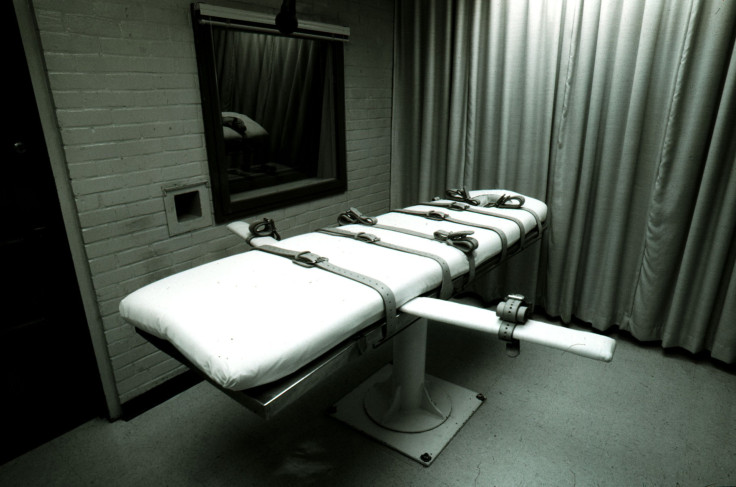
KEY POINTS
- Media witnesses said Smith shook for several minutes
- Alabama's corrections commissioner said the side effects Smith experienced were all expected
- Smith's legal team had challenged the method due to no documented evidence of its effects
The state of Alabama on Thursday night executed hitman Kenneth Smith, marking the United States' first known case of a death row inmate being put to death by nitrogen gas.
Smith, 58, escaped the state's first attempt to execute him by lethal injection in 2022 when officials struggled to insert an intravenous needle in his body. Hours before his execution, the U.S. Supreme Court denied his last-minute appeal for an 11-hour request for a stay of execution. The same request was declined Wednesday.
Sentenced to death for his role in a murder for hire in 1988, Smith, whose time of death was 9:25 p.m. EST, wrote a long statement before his execution. "Tonight Alabama caused humanity to take a step backward ... I'm leaving with love, peace and light, thank you for supporting me, love all of you," he wrote as per media witnesses.
John Hamm, Alabama Department of Corrections Commissioner, said during a news conference after Smith's execution that Smith may have "struggled against his restraints a little bit" while nitrogen ran for about 15 minutes.
He noted there was "some involuntary movement and some agonal breathing, so that was all expected," when asked about the joint report of media witnesses regarding Smith shaking at the beginning of his execution. He added that "nothing was out of nowhere of what we were expecting" from the side effects of nitrogen hypoxia.
Smith appeared to have a convulsion and shook "for about four minutes" after the nitrogen gas started flowing into his full-face mask, as per the local Montgomery Advertiser. For another two to three minutes, he gasped for air "to the extent that the gurney shook several times," the report added.
The family of Elizabeth Sennett, Smith's victim, spoke to the media after Hamm addressed press questions. One of Sennett's sons, Mike Sennett, said "nothing happened here today that's going to bring mom back." The family is just "glad this day is over," he added, while fighting back tears, noting that Smith "made some bad decisions 35 years ago" and he finally paid off the debt.
Smith's legal team said in a statement provided to CBS News that they were "deeply saddened" by their client's execution. The legal counsel previously challenged the nitrogen gas method, saying there was no documented evidence of how the punishment will affect the inmate. They also accused Alabama of using Smith as a "test subject" for nitrogen hypoxia.







